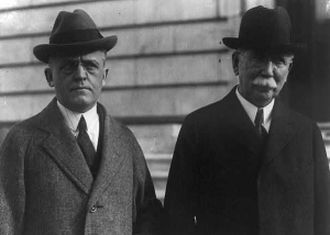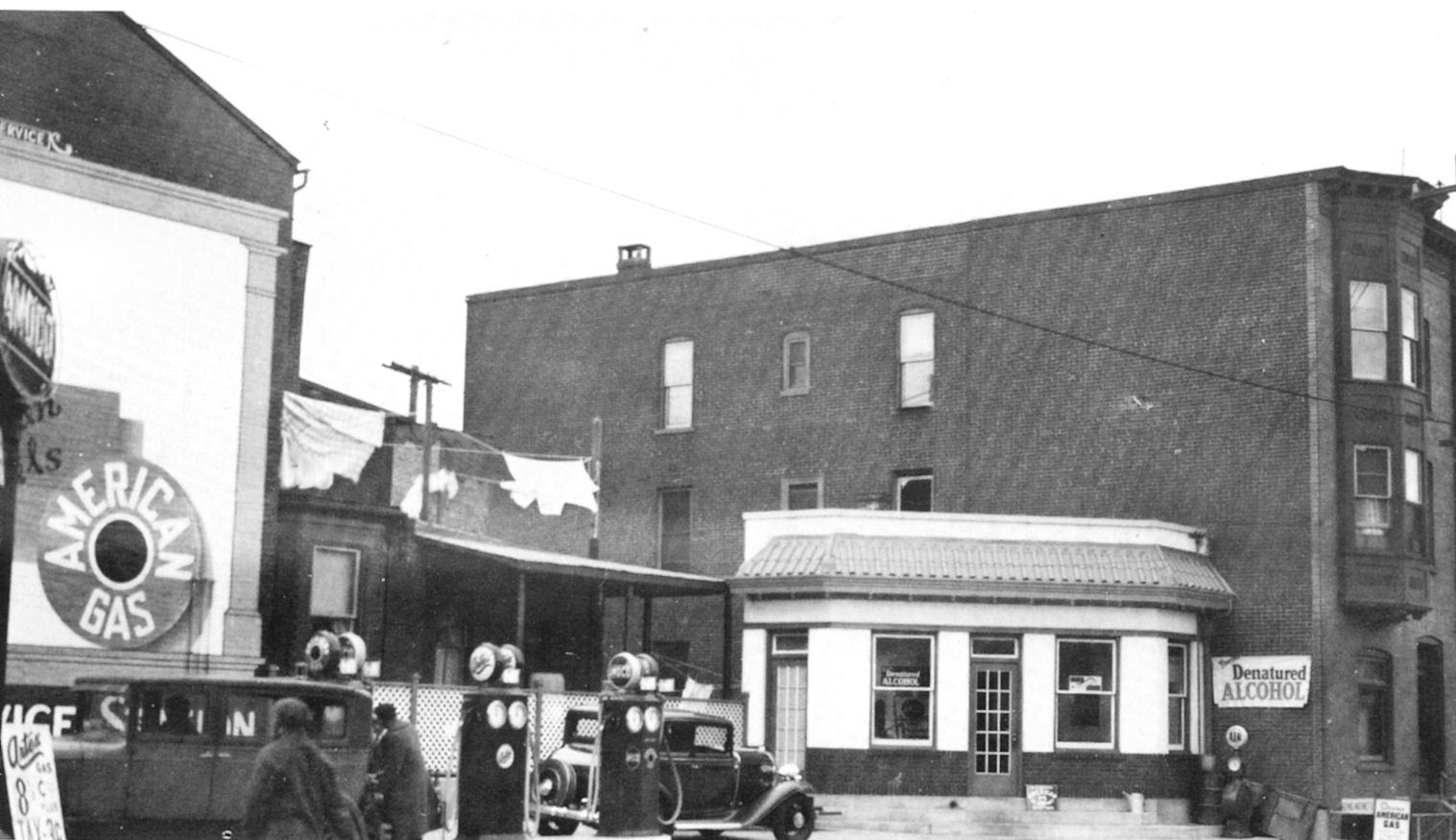|
Pan American Petroleum Company
The Pan American Petroleum and Transport Company (PAT) was an oil company founded in 1916 by the American oil tycoon Edward L. Doheny after he had made a huge oil strike in Mexico. Pan American profited from fuel demand during World War I, and from the subsequent growth in use of automobiles. For several years Pan American was the largest American oil company, with holdings in the United States, Mexico, Colombia and Venezuela. In 1924 Pan American was involved in the Teapot Dome scandal over irregularities in the award of a U.S. government oil concession. Standard Oil of Indiana obtained a majority stake in 1925. The company sold its foreign properties to Standard Oil of New Jersey in 1932. What was left of Pan American was merged with Standard Oil of Indiana in 1954 to form Amoco. Origins Edward L. Doheny was a prospector who became wealthy in the 1880s from silver mines in the Black Range of New Mexico. In 1892 he moved with his family to Los Angeles, where he sank a mine and f ... [...More Info...] [...Related Items...] OR: [Wikipedia] [Google] [Baidu] |
Edward L
Edward is an English given name. It is derived from the Anglo-Saxon name ''Ēadweard'', composed of the elements '' ēad'' "wealth, fortune; prosperous" and '' weard'' "guardian, protector”. History The name Edward was very popular in Anglo-Saxon England, but the rule of the Norman and Plantagenet The House of Plantagenet () was a royal house which originated from the lands of Anjou in France. The family held the English throne from 1154 (with the accession of Henry II at the end of the Anarchy) to 1485, when Richard III died in ... dynasties had effectively ended its use amongst the upper classes. The popularity of the name was revived when Henry III of England, Henry III named his firstborn son, the future Edward I of England, Edward I, as part of his efforts to promote a cult around Edward the Confessor, for whom Henry had a deep admiration. Variant forms The name has been adopted in the Iberian Peninsula#Modern Iberia, Iberian peninsula since the 15th century ... [...More Info...] [...Related Items...] OR: [Wikipedia] [Google] [Baidu] |
Barco Oil Concession
The Barco oil concession was one of the main concessions in Colombia during the early development of its petroleum industry, the other being the De Mares concession. Oil was first found in the Norte de Santander department near the border with Venezuela in 1905, but development did not start until 1936. A joint venture between the Texas Corporation and Socony-Vacuum (now Texaco and Mobil) sank the wells and built a pipeline across the mountains and through swampy jungle to the Caribbean coast at Coveñas. Workers were harassed by Motilone Indians defending their territory, and several died. The concession began operation in 1939 and continued into the 1960s, when it began to be depleted. Other fields in the region are still productive. Location The oilfield lies in the Norte de Santander department, in the east of the country, in the Catatumbo River basin. The oilfield is part of the Maracaibo Basin, which spans Colombia and Venezuela. To the west it is bounded by the Santander ... [...More Info...] [...Related Items...] OR: [Wikipedia] [Google] [Baidu] |
Lago Petroleum Corporation
Lago Petroleum Corporation was an oil production company established by Americans in 1923 that exploited the oilfields in Lake Maracaibo. It was acquired by Standard Oil of New Jersey in 1932. Later it was nationalized. Ownership Edward L. Doheny, who owned the Pan American Petroleum and Transport Co., controlled the Barco concession in Colombia through a subsidiary. He became interested in Venezuelan oil operations, including a pipeline from Colombia to Venezuela to reduce the cost of exporting the Colombian oil. After meetings between J.A. Coronil and Doheney's staff, the Lago Petroleum Co. was formed by Preston McGoodwin, Joshua S. Cosden and Payne Whitney Associates, and registered in Delaware on 12 April 1923. British-Mexican Petroleum acquired about 25% of its stock. In 1924 the company took over concessions that had been granted to the British Equatorial Oil Company in addition to properties it had purchased from twenty Venezuelans who had obtained them from General Ju ... [...More Info...] [...Related Items...] OR: [Wikipedia] [Google] [Baidu] |
Standard Oil Company (Indiana)
Amoco () is a brand of fuel stations operating in the United States, and owned by BP since 1998. The Amoco Corporation was an American chemical and oil company, founded by Standard Oil Company in 1889 around a refinery in Whiting, Indiana, and was officially the Standard Oil Company of Indiana until 1985. Originally part of the Standard Oil Company trust, it focused on producing gasoline for the new automobile market. In 1911, as part of the break-up of the Standard Oil trust, it became an independent corporation. Incorporated in Indiana, it was headquartered in Chicago, and formally adopted the name Amoco in 1985. Although the Amoco Corporation merged in 1998 into BP Amoco, the Amoco name was resurrected in 2017 as a brand that service station owners could choose to use when they purchased supplies from BP in selected areas of the United States. In 1925, Standard Oil of Indiana absorbed the American Oil Company, founded in Baltimore in 1910, and incorporated in 1922, by Lou ... [...More Info...] [...Related Items...] OR: [Wikipedia] [Google] [Baidu] |


